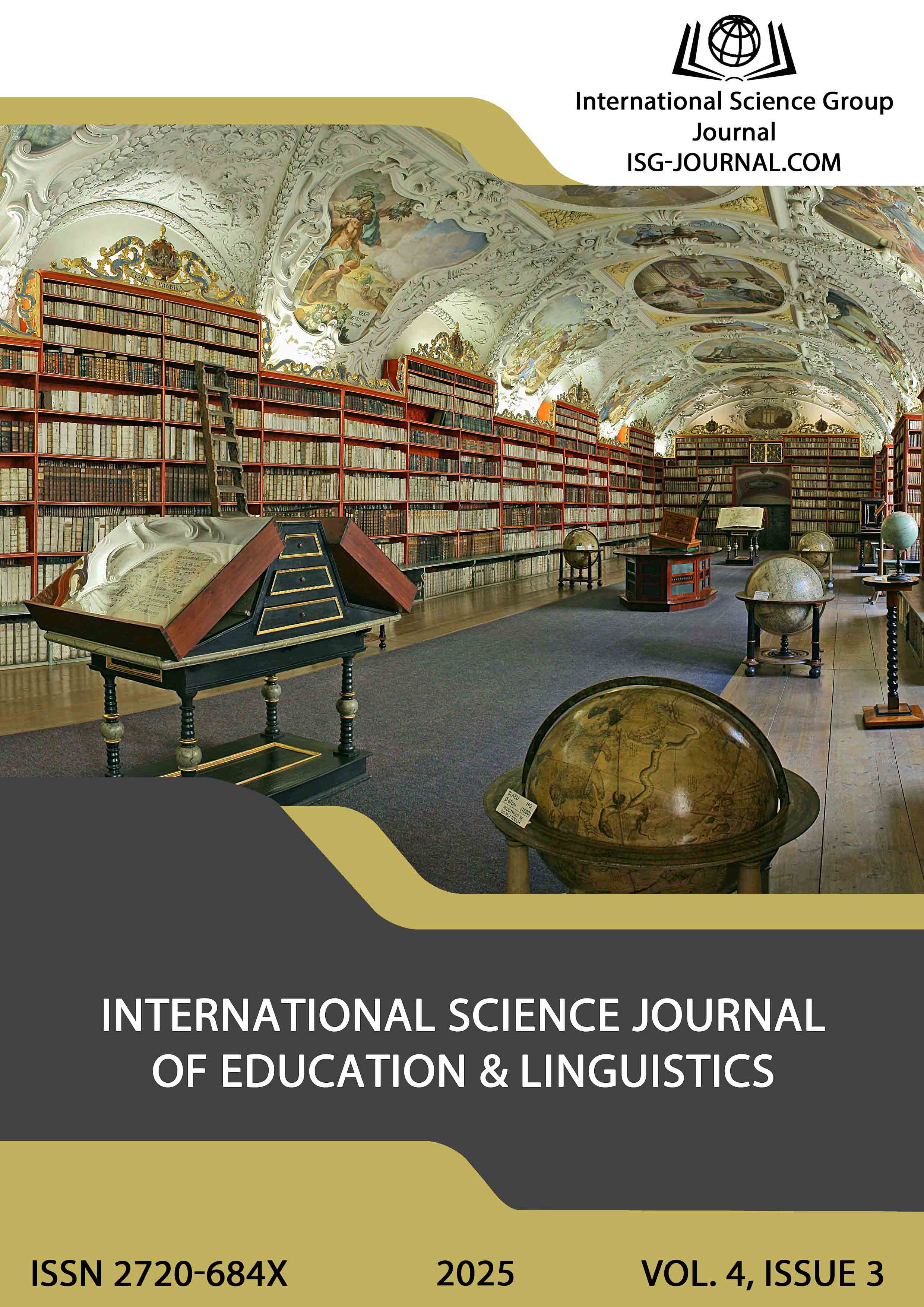Use of interactive teaching methods in the modern content of adult education
DOI:
https://doi.org/10.46299/j.isjel.20250403.05Keywords:
adult education, interactive learning, interactive methods, interactive teaching methods, interactive learning technologies, lifelong learning, motivation, critical thinking, facilitationAbstract
This article explores the specific features of applying interactive teaching methods within the system of modern adult education. In the context of rapid development of the information society and the growing need for continuous professional and personal development, adult education is gaining strategic importance. The author emphasizes that traditional passive forms of material presentation are ineffective for adult learners who possess their own experiences, established life views, and limited time resources. The focus of the study is interactive learning as a pedagogical technology based on active participation, collaboration, and dialogue among participants in the educational process. The article examines the significance of interactive learning as a factor in enhancing the professional competence of primary school teachers in the context of digital transformation in education. It is noted that the modern education system requires teachers to engage in constant professional growth, to improve personal and professional qualities, develop critical thinking, creativity, teamwork skills, and the ability to use innovative teaching technologies. The author highlights the necessity of using interactive teaching methods in professional development courses for teachers as an effective tool for developing professional competencies. The typology of interactive methods is outlined based on the classification by O. Pomietun and L. Pyrozhenko: cooperative learning technologies, collective-group learning, situational modeling, and discussion-based learning technologies. Examples of the most effective interactive methods are provided, including brainstorming, round-table discussions, “draw and write,” case methods, debates, the PRESS method, clusters, and others. An important aspect of the article is the description of the structural model of an interactive lesson, which involves a step-by-step organization of educational interaction: motivational stage, topic presentation, information delivery, practical activities, discussion formats, knowledge actualization, and lesson completion through reflection. In particular, effective methods of motivating course participants are proposed, including icebreakers and creative tasks to activate learners.References
криголамів для зустрічей: веселі та змістовні заходи. URL: https://www.doola.com/uk/blog/ice-breakers-for-meetings/ (дата звернення: 05.10.2024)
Братко О. М. Інтерактивні методи як засіб розвитку професійних компетентностей у студентів. Педагогічний альманах. 2018. № 2. С. 65-70.
Бурчак С., Дмитренко В. Використання інтерактивних форм і методів у процесі формування проєктної компетентності майбутніх учителів технологій. Вісник науки та освіти. 2024. №5 (23). С. 773-782.
Єгорова В. В., Голубєва М. О. Інноваційні педагогічні технології в сучасному навчально-виховному процесі ВНЗ. Наукові записки. Педагогічні, психологічні науки та соціальна робота. 2009. Том 97. с.28-31.
Зязюн І. А. Культура в контексті політики та освіти. Мистецтво та освіта. 1998. № 2. С. 2–8.
Лях І. М., Савенков О. І., Чобаль В. В., Гладкий К. І. Використання інтерактивних методів навчання: шлях до ефективної освіти. Актуальні проблеми економіки. 2025. № 4 (286). С. 14-20.
Патиченко М. Використання цифрових інтерактивних технологій в освітньому процесі. Порадник. Київ : КВПУТДО. 2021. 18c.
Рудницька Н. Ю. Особливості використання інтерактивних технологій навчання математики у процесі підготовки майбутніх вчителів початкових класів. Формування дидактичної компетентності педагогів дошкільної та початкової освіти: збірник науково-методичних праць / за заг. ред. В. Є.Литньова, Н. Є. Колесник, Т. В. Наумчук. Житомир : Вид-во ЖДУ ім. І.Франка, 2015. С. 77-81.
Савченко О. В. Проектна компетентність як складова професійної підготовки вчителів: методологічні аспекти. Педагогічні науки: теорія, історія, інноваційні технології. 2020. №12. С. 82-88.
Сучасний урок. Інтерактивні технології: Наук.-матод. посібн. / За ред О. І. Пометун. Київ :Видавництво А.С.К., 2004. 192 с.
Dichev C., Dicheva D. Gamification in Education: A Systematic Mapping Study. Journal of Educational Technology & Society, 2021. №24(1). С. 1-18.
Downloads
Published
How to Cite
Issue
Section
License
Copyright (c) 2025 Yuliia Sydorenko

This work is licensed under a Creative Commons Attribution 4.0 International License.





